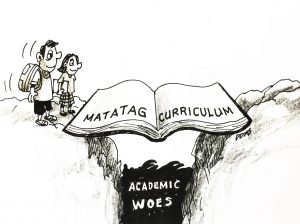The nationwide opening of classes for the school year 2024-2025 in public elementary and secondary schools under the Department of Education (DepEd) marks a significant milestone in the Philippine education system. This year, the excitement and anticipation surrounding the first day of school are amplified by the introduction of the MATATAG Curriculum, a new educational framework that promises to address long-standing issues that have plagued the DepEd, aiming to provide a more robust and comprehensive learning experience for students.
One of the most notable aspects of the MATATAG Curriculum is its focus on addressing past deficiencies and systemic problems within the education sector. For years, educators and policymakers have grappled with challenges such as outdated teaching methods, insufficient resources, and a lack of emphasis on critical thinking and practical skills. The new curriculum aims to rectify these issues by incorporating innovative teaching strategies, modernized content, and a more student-centered approach. This shift is expected to enhance the overall quality of education, and better prepare students for the demands of the modern world.
The implementation of the MATATAG Curriculum requires significant adjustments from school officials, teachers, and students alike. School administrators are tasked with ensuring that the necessary resources and training are provided to support the transition. Teachers, on the other hand, must adapt to new teaching methodologies and materials, which can be both challenging and rewarding. For students, particularly those in elementary and junior high school, the curriculum changes may initially seem daunting. However, with proper guidance and support, these adjustments can lead to a more engaging and effective learning experience.
While the new curriculum holds great promise, its implementation must be monitored and evaluated continuously. The DepEd must remain vigilant in identifying any issues that arise and be prepared to make necessary adjustments. Stakeholder feedback, including input from educators, students, and parents, will be essential in refining the curriculum and ensuring its success. Additionally, adequate funding and resources must be allocated to support the various needs of schools as they transition to the MATATAG Curriculum. Without these critical elements, the potential benefits of the new framework may not be fully realized.
As we embark on this new academic year, collective effort is required to make the MATATAG Curriculum a success. The collaboration between school officials, teachers, students, and the broader community will be key to overcoming challenges and achieving the desired outcomes. The start of the school year is always a time of renewed hope and possibilities, and with the introduction of the MATATAG Curriculum, there is an added layer of excitement and potential for transformative change. May this back-to-school event prove fruitful, allowing everyone involved to reap the targeted success and contribute to a brighter future for Philippine education.




